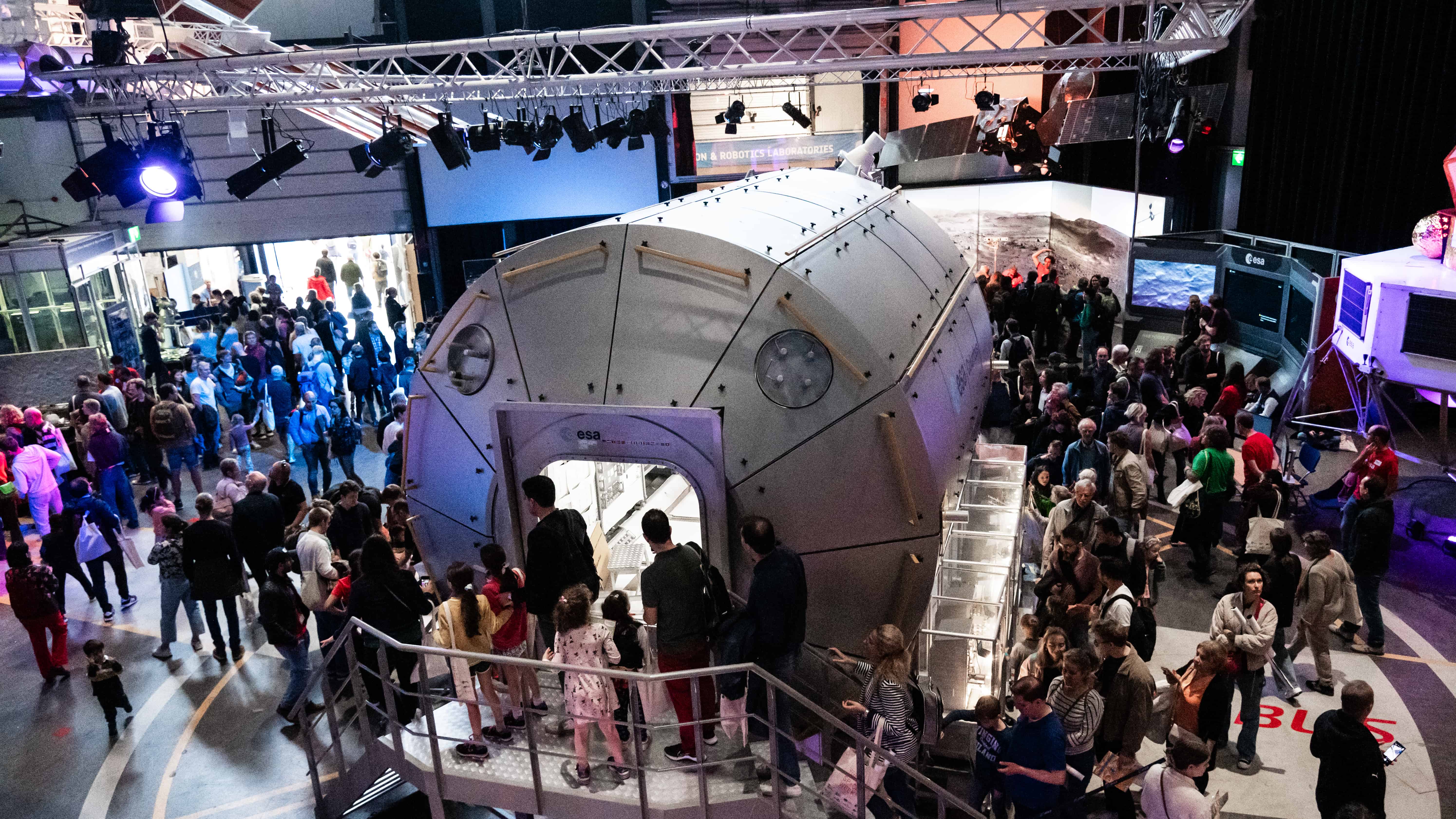
Women are still very much underrepresented in the engineering sector. The figures vary, but in general, barely 20% of the people in this sector are women. Many of them mention having problems with the male culture at work. That’s why Hilde de Vocht and Ingelou Stol set up Female Tech Heroes six months ago. The aim is to inspire women to work in technology. They also want to give women who are already working in this sector the confidence to grow in their work. They organized an intimate dinner during the Dutch Design Week (DDW) to determine together with their members a course for the coming years.
Around 1600 women have already joined the network. A hundred of them took part in the dinner. Numerous connections were made. Women are open to conversation and are sincerely interested in each other. Participants changed places after each course so they could meet more people. The women met each other over a glass of wine and stellar cuisine. This resulted in wonderful conversations and entertaining situations. “There was a very special atmosphere. Everyone was very open,” Ingelou Stol said after the dinner. “People are joining up with a specific purpose. Everyone thinks it’s important to raise the number of women in technology.”
A major congress
The first Female Tech Heroes event was a congress that was held in May. “There was a great deal of enthusiasm for that,” says Stol. “Since then, I often get messages from people who want to engage with us. Because they want to do something for the network or because they have personal questions.”
Next year, Female Tech Heroes will be organizing another congress during the 2020 Dutch Technology Week. “This edition will last two days”, says Stol. “We have four half-days when we will have the opportunity to highlight a different theme each time.” This makes the event interesting for as broad a cross-section of women as possible. Equality is an important component, but entrepreneurship and leadership will also feature.
Expanding the network
Those behind the initiative are working hard to expand the network. “That’s why this dinner was very important,” she added. Together with Hilde de Vocht, she asked the members questions in order to determine a future for the network. The women made it clear that they were interested in themes such as e.g., leadership, education and entrepreneurship. They want to make an impact.
When asked how Female Tech Heroes could help with this, they replied: through conversations with mentors, passing on job vacancies and via networking events. The network also wants to work with role models – women who are capable of inspiring others. The majority of the attendees stated that they would be prepared to take on this role.
Should men be a part of it?
The presence of men in the network was also an important issue, of course. Three men were present at the dinner. This number needs to increase sharply as far as the women are concerned. During dinner it turned out that in their ideal scenario, the Female Tech Heroes network should have a male membership of about 30%. After all, they can see just as well that more women in technology is essential and consequently do their bit to make it happen. Stol: “If we want to change the culture, we have to keep up the conversation. That’s why it is also important that men join the network.”
Based on the members’ answers, De Vocht and Stol will draw up a strategic plan for the years ahead. “We want the network to keep on steadily growing over the coming period. We don’t need to double in size in just one year. It is important that the right people join up. That ensures a higher level of quality.”
Cooperation is crucial
Cooperation with other parties who have similar ideals is crucial to the network. “We are a network. We don’t have to do everything ourselves,” she says. “It’s our job to encourage people to work with each other.” For example, she sees that cooperation with the VHTO is in the offing. The expertise agency for girls and women in technology is already well on the way to finding role models for girls at school.
During dinner, the women shared their experiences about inequality at work. For example, some of them said that they weren’t taken seriously during meetings, or that some men make awful jokes on the job. “Women are often afraid to share these kinds of experiences because they think they are the only ones who are going through these,” explains Stol. “They feel supported by each other on such an evening.” At the end of the evening, a number of women even made spontaneous pitches, for example for a new job or for a partner in a start-up.







